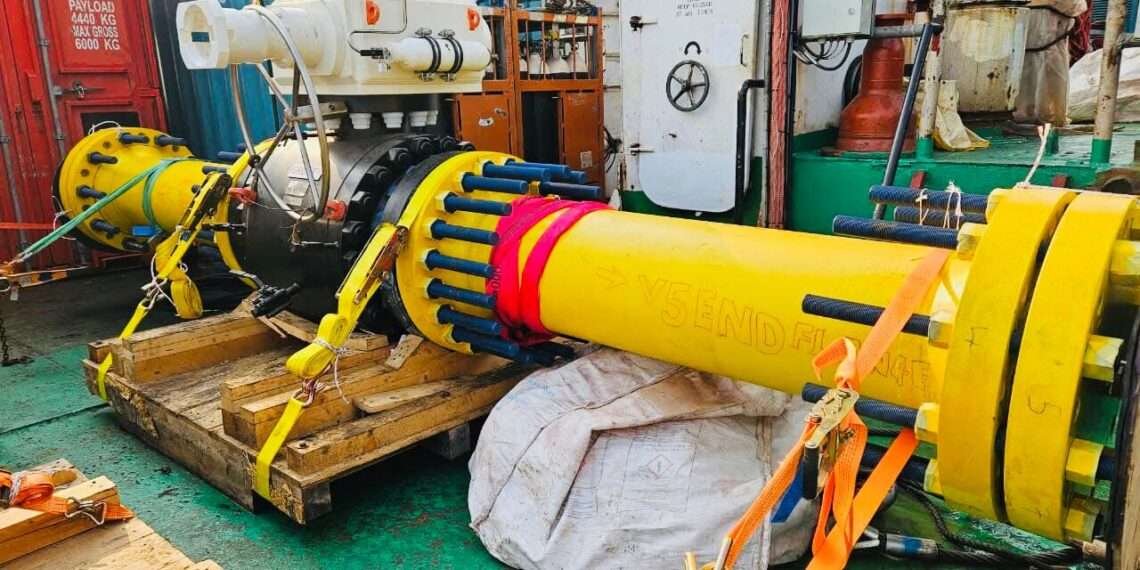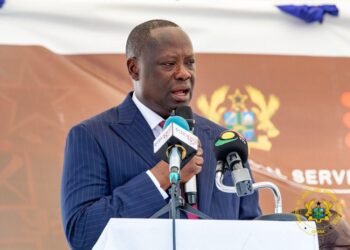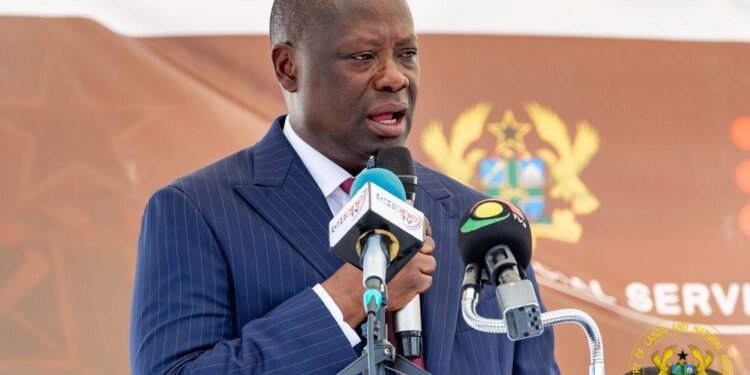The West African Gas Pipeline Authority (WAGPA), led by its Director General, Chafari Kanya Hanawa, has conducted an inspection visit to the West African Gas Pipeline Company (WAPCo) following the successful completion of maintenance activities on the 20-inch, 678-kilometer-long pipeline.
This visit underscores WAGPA’s commitment to ensuring regulatory compliance and operational efficiency within the West African gas transportation network.
The extensive maintenance exercise, which involved pigging and cleaning of the pipeline, was completed five days ahead of the initial March 2, 2025, deadline set by WAPCo.
According to Ms. Hanawa, the primary objective of the exercise was to clear the pipeline of debris in accordance with regulatory and industry standards, inspect for corrosion, damage, or defects, enhance system reliability and performance, and replace subsea valves in Tema and Cotonou.
Speaking to the media during the inspection, Ms. Hanawa commended WAPCo for completing the maintenance ahead of schedule saying, “They wrote to us and informed us that the eastern section was completed.”
“Our visit is to assess the work done and communicate with the public.
“We understand that shutting down the pipeline, even for a short period, affects gas supply and has an impact on the population. However, such maintenance is crucial for the pipeline’s optimal operation.”
Chafari Kanya Hanawa, Director General of WAGPA
The maintenance work, which included cleaning the pipeline to remove debris and inspecting it for corrosion, damage, or defects, is considered crucial to ensuring the pipeline’s continued efficiency.
Additionally, the replacement of subsea valves in the regions of Tema (Ghana) and Cotonou (Benin) was part of the exercise, aimed at enhancing the system’s overall reliability and performance.
WAPCo’s ability to complete the maintenance work ahead of schedule has not only ensured that gas transportation was restored quickly but has also avoided any significant disruptions in the supply of natural gas to key markets, especially in Ghana.
The West African Gas Pipeline has been an important energy lifeline for the region, providing gas that supports power generation and industrial activities.
The pipeline currently has a capacity of 170 million standard cubic feet per day (MMscfd), with potential for future expansion to 474 MMscfd.
Since its inception, it has supplied about 245 million MMBTU of natural gas to Ghana, contributing to the generation of over 71,843 GWh of energy, leading to significant energy cost savings exceeding $1 billion.
WAGPA’s Role as a Regulatory Body

Ms. Hanawa further emphasized WAGPA’s role as a regulatory body, ensuring compliance with the laws agreed upon by the four State Parties—Benin, Ghana, Nigeria, and Togo.
“We operate strictly within the regulatory framework.
“If WAPCo adheres to regulations and completes maintenance ahead of schedule, it is a positive development.”
Chafari Kanya Hanawa, Director General of WAGPA
WAGPA’s core functions include ensuring that the four countries adhere to the agreed-upon laws and regulations, promoting the sustainable supply of natural gas, and fostering regional economic integration through energy collaboration.
As part of its duties, WAGPA also monitors the pipeline’s development, operation, and eventual decommissioning, ensuring compliance with industry standards while facilitating the efficient and reliable operation of the gas transportation system.
“We report our findings to the Committee of Ministers, which consists of energy ministers from the four countries, who then report to their respective heads of state.
“This ensures that any necessary corrections or assistance for WAPCo’s optimal operation can be provided.”
Chafari Kanya Hanawa, Director General of WAGPA
With the resumption of gas transportation through the pipeline, businesses, power producers, and industrial users across Ghana, Togo, and Benin can anticipate improved energy supply stability, reinforcing the role of natural gas as a cornerstone of economic growth in the region.
The visit by Ms. Hanawa and her team highlights the significance of regulatory oversight in West Africa’s energy landscape.
As the region continues to develop its energy infrastructure, collaboration among stakeholders will remain crucial in achieving long-term sustainability and economic prosperity.
READ ALSO: Trump Berates Zelenskyy























